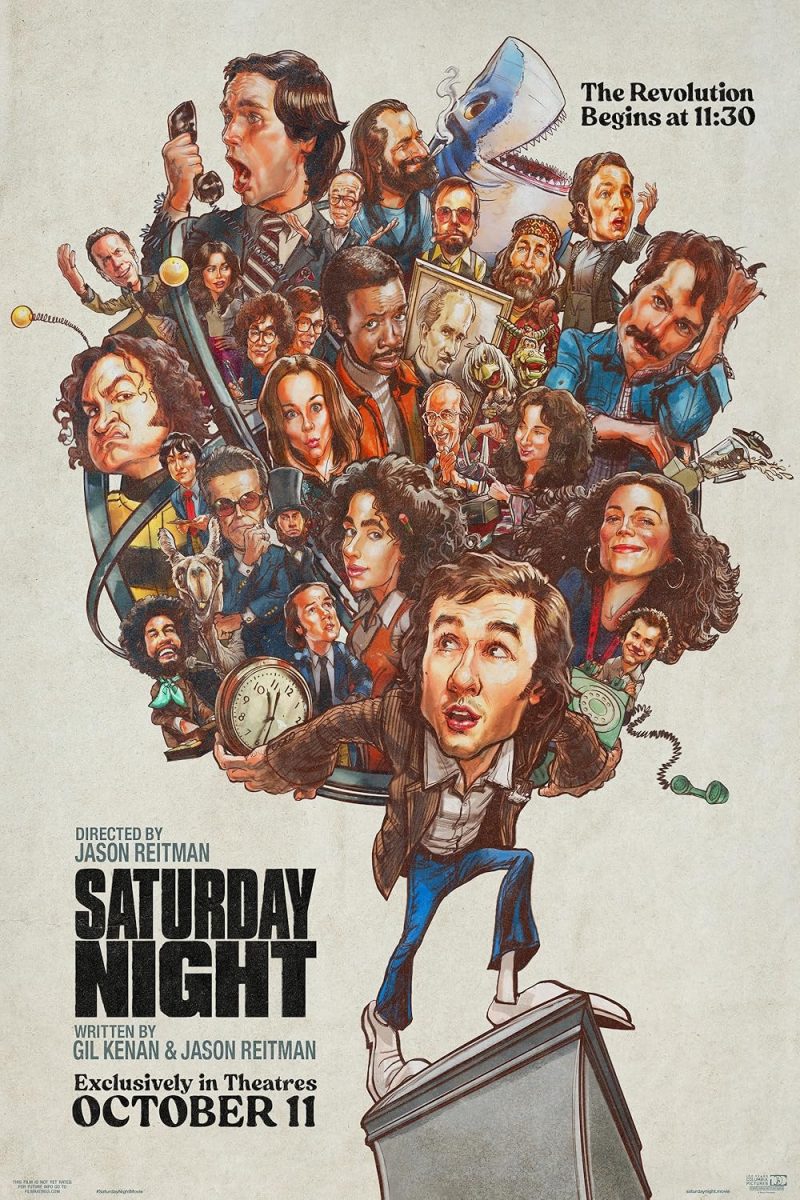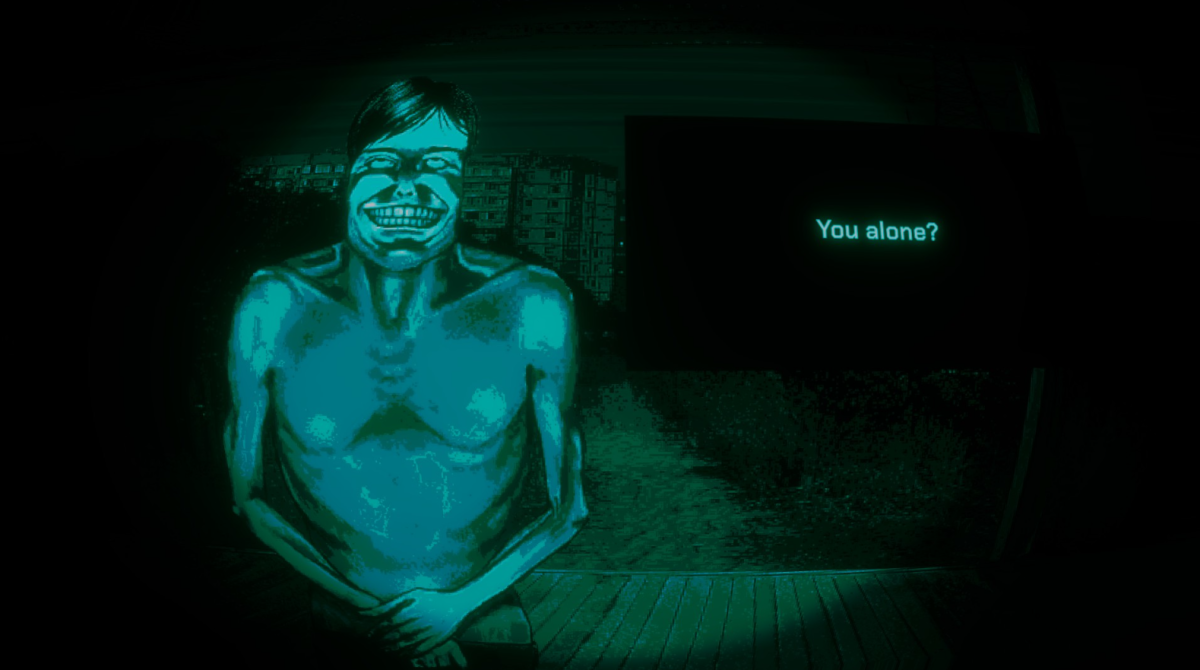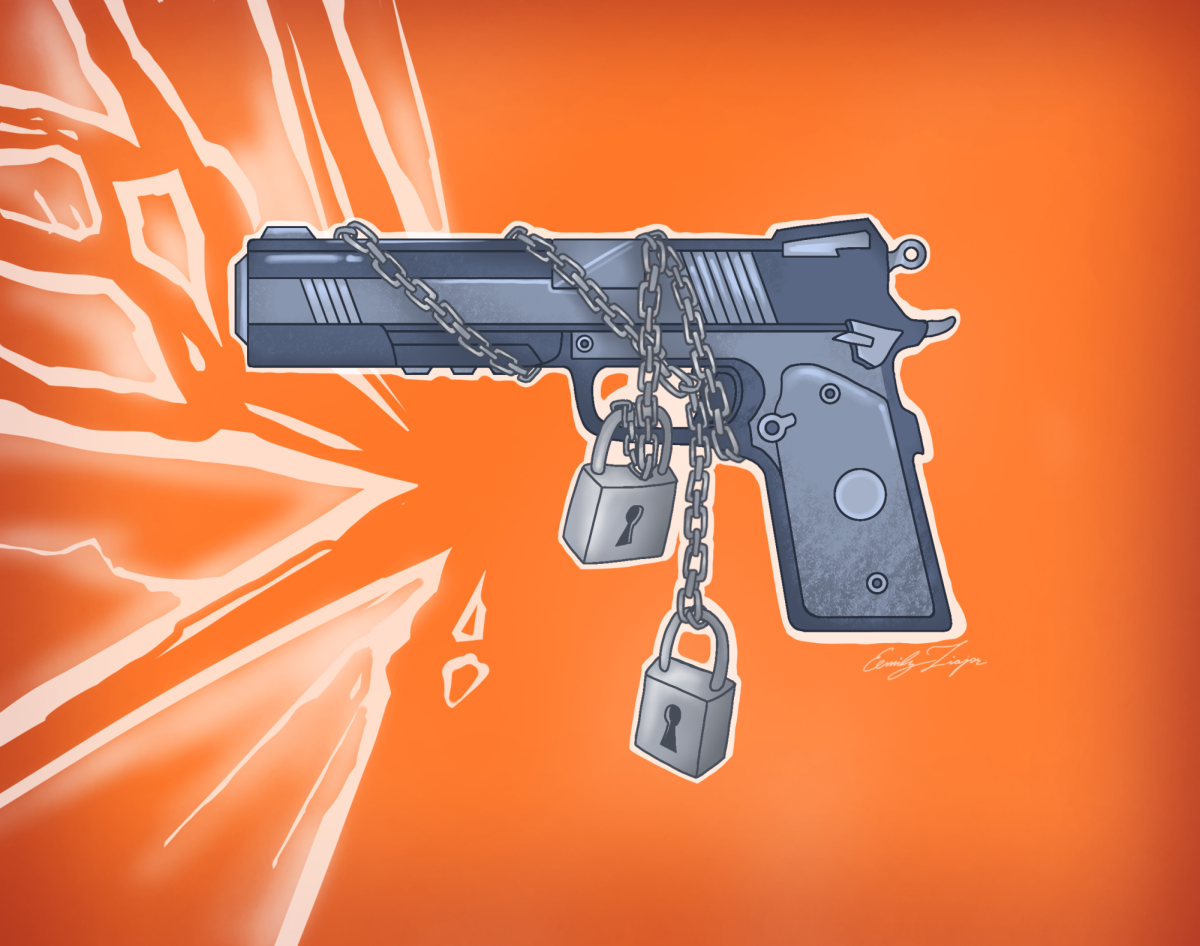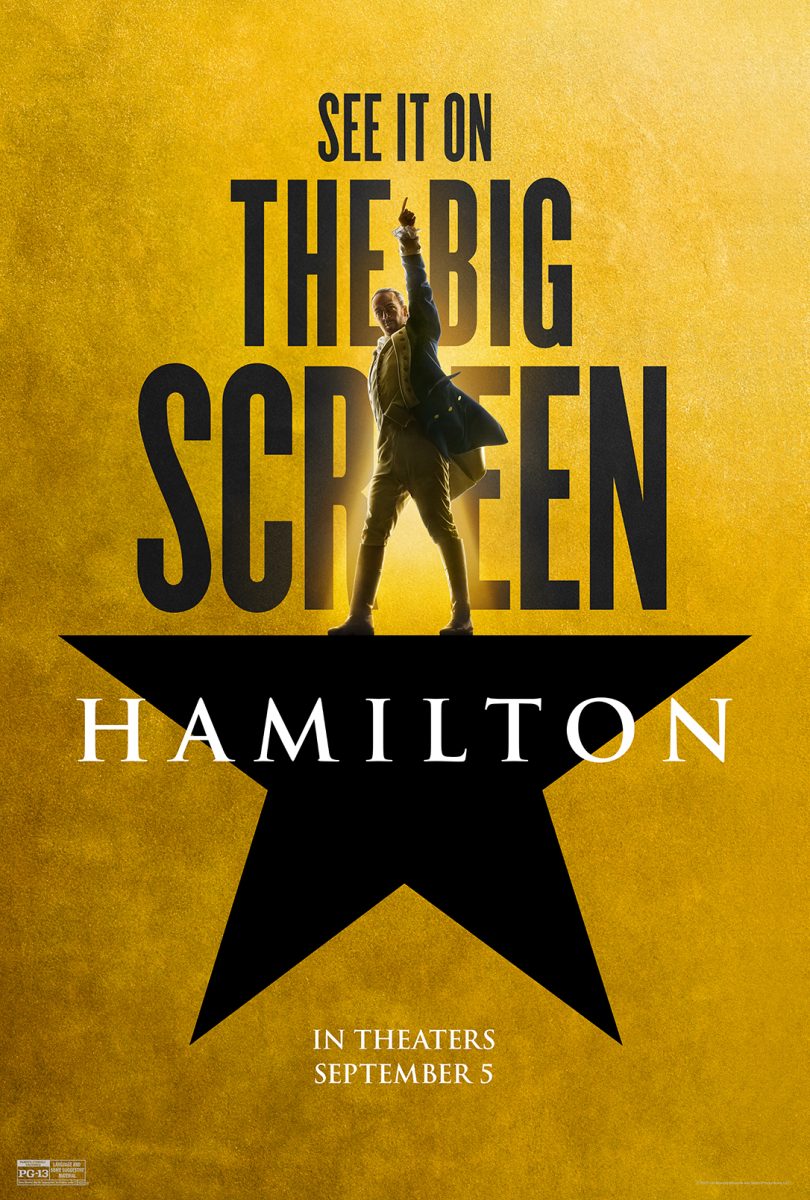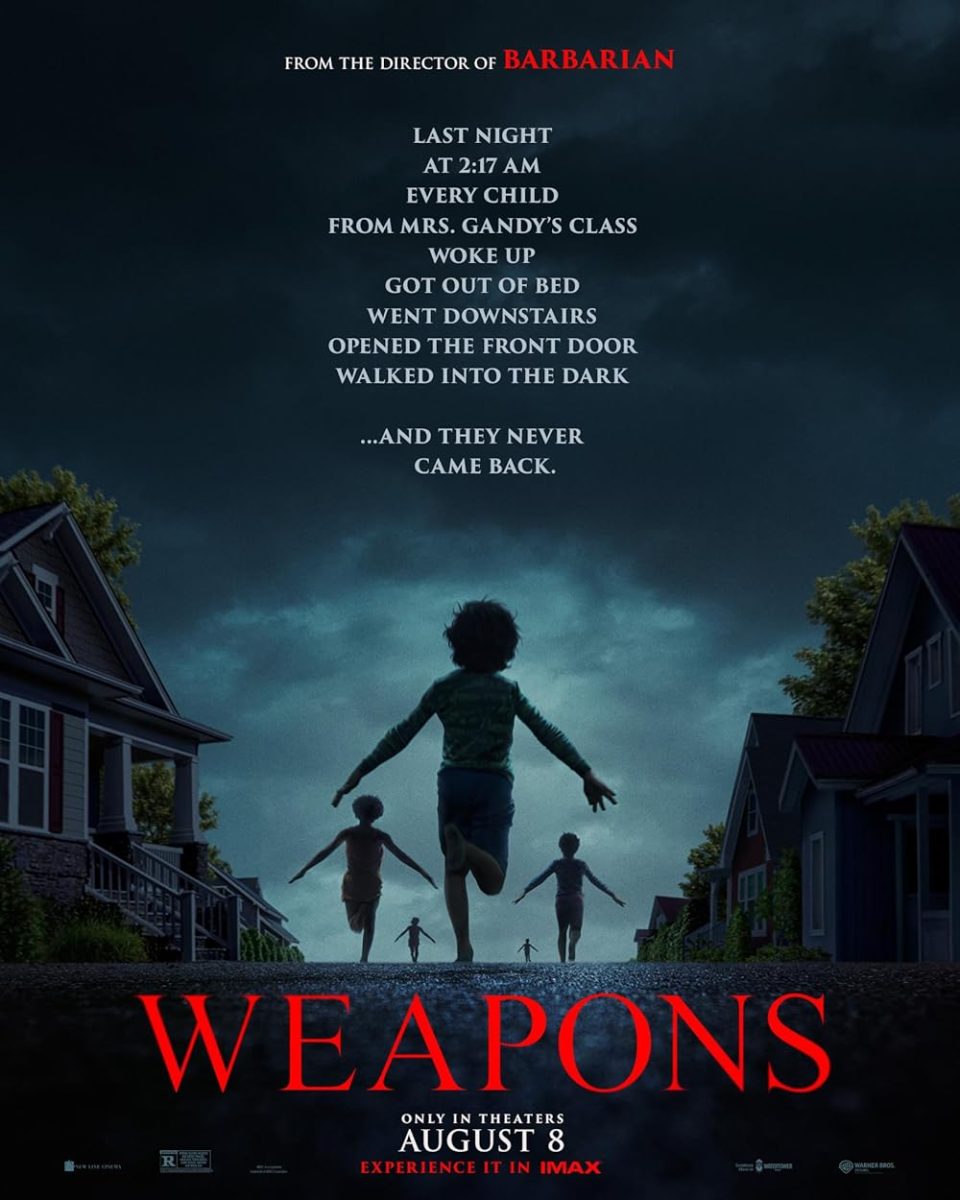Live from New York, it’s director Jason Reitman’s SNL from hell. “Saturday Night Live” has become a staple for many Americans throughout the United States. The show’s silly antics and bizarre scenarios have entertained viewers for numerous decades. Following the release of its 50th season, audiences are taken back to the origins of SNL. Jason Reitman, son of Ivan Reitman, the renowned director of iconic comedies from the ‘80s and ‘90s, celebrates the beloved series with a twist. Rather than reflecting upon the glory of classic SNL, Reitman instead throws audiences into a stressful, disastrous, yet exciting film chronicling the 90 minutes before the premiere of one of the most beloved series in the history of American television.
“Saturday Night” follows an ambitious Lorne Michaels, played by Gabriel LaBelle (“The Fabelmans”), as he attempts to control his enigmatic band of young, crude, unknown comics 90 minutes before his new series hits the air. As tensions rise and chaos unfolds, Michaels struggles to maintain his production, and we, the audience, are left wondering how the hell he’s going to pull it all off.
Reitman has described the film in interviews as a “thriller,” and it’s made abundantly clear in its presentation. As soon as the film started, I was thrust into an exhilarating sensory experience. It is a constant flow of events and information that gives a sense of how hectic this production was. The whole thing becomes so mercilessly visually and audibly overwhelming that I felt engulfed in the tension and stress of the characters.
There’s this exciting sense of energetic movement in “Saturday Night.” The camera is constantly moving, making you feel like you are a part of the film and not just watching it. Consisting of longer takes, the camera often moves around, struggling to capture the numerous elements simultaneously occurring on screen. It’s like the filmmakers got some poor sucker thrown in the midst of a chaotic environment and told them to film as many things happening as possible. Even when there are cuts to the next shot, it’s done tightly to maintain the energy of the scene.
Adding to the stress is the sound. Characters constantly talk over each other with little room for space between lines – little room to breathe -creating this unavoidable, suffocating feeling. And if the film wasn’t chaotic enough, a hectic, avant-garde jazz-esque musical underscore is blended into the mix, making me feel even more dreadful for any looming disasters.
The stars in the film deliver uncannily accurate portrayals of the prominent figures from early “Saturday Night Live.” Growing up on ‘80s comedies at the height of these icons’ careers, I found their portrayals in the film remarkably authentic. Each standout moment the actors made me smile and laugh in awe. Admittedly, at times it felt like the actors were putting on caricatures of the figures, but the characterization is so well done it effectively manipulated me into believing what I was seeing is the real person. By the time the credits rolled, I couldn’t believe the jerk wandering around spitting tasteless, yet witty comments wasn’t actually Chevy Chase.
And it’s the respect these actors put into their portrayals that truly adds to the authenticity of the performance. One could just play them as the rebellious, grown man-children as they were in the film; however, it is with this respect that even in spite of the obnoxious shenanigans these buffoons participated in, we understand the influence and impact they had on comedy as a genre.
As finely crafted as the film was, it loses this precision through its narrative. The decision to have the film focus strictly on the 90 minutes before the premiere of “Saturday Night Live” is a unique and creative choice but a restrictive one nonetheless. The issue is that the film wants to present itself as something far greater than what its restrictive plot can allow. This results in a handful of narrative flaws that broke my engagement in the film.
Boasting a large ensemble cast, many are unfortunately underutilized, or feel as if they’ve been forgotten. I admire Lamorne Morris’ portrayal of Garrett Morris. Morris is presented in a way in which we root for his success–for Michaels and the other members of the production to finally acknowledge the talent he possesses instead of just throwing him to the side. Ironically enough, Lamorne Morris delivers a strong performance in such an underutilized role, reflective of the figure he represents.
My main problem is this: you simply can’t develop fulfilling character arcs in such a restricted narrative with such a massive ensemble. Although there is a visible vision Reitman has for the film, his ideas and messaging don’t exactly translate as strongly as they should because of his decision to implement such a limiting format.
Furthermore, the events that unfold in the film can get to a point where they jump the shark. Even if the stories it tells are true, most of it is presented in such a heightened, over the top manner it seems less genuine. In comedy, an important consideration is how much you can get out of a joke before it becomes unfunny. As with this film, how much can you milk your concept before it becomes dull? The film gets tired midway through and can no longer keep up with the frenetic energy the narrative wants to give off. This poor consistency in pacing holds the movie back from what it could have been. Had Reitman further explored Michaels’ story and focused less on the 90 minutes before air, the film could have better developed character arcs, pacing and not exhaust its unique concept. Would “Home Alone” still be as engaging as it was if the entire film was just Kevin fighting off the burglars?
Film is a medium that goes beyond just the narrative. “Saturday Night” suffers from forcing a plot that can’t work as effectively as it wants to, but the cast and crew work at the top of their game to deliver its point as strongly as they can. As troubled as the writing is, audiences can expect to find a solidly crafted film. Its remarkable performances and tight, precise editing, merged with the hectic visuals and musical underscore, help make this a fascinating film. Nostalgic for older generations and insightful for younger audiences, “Saturday Night” is a decent tribute to “Saturday Night Live” and the impact its one-of-a-kind alumni have had on American pop-culture.
3/5


